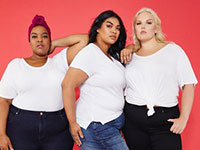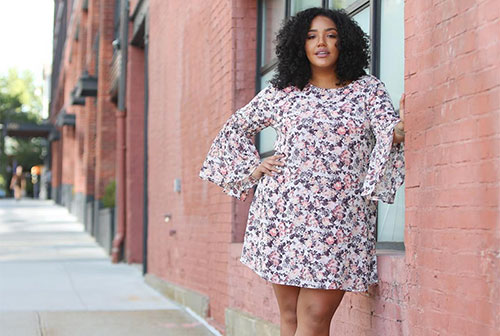"Miniscule in size as of now, plus size start-ups are searching for venture capitalists who can change the dynamics of their business by providing them adequate funds. However, Nadia Boujarwah, Cofounder of the plus-size personal styling service Dia&Co, notes investors usually try to match their current opportunities with previous successes which works against the startups as they still have to prove their capabilities. Also, the fact that only 10 per cent of decision makers in the segment are women compounds matters further."
 Miniscule in size as of now, plus size start-ups are searching for venture capitalists who can change the dynamics of their business by providing them adequate funds. However, Nadia Boujarwah, Cofounder of the plus-size personal styling service Dia&Co, notes investors usually try to match their current opportunities with previous successes which works against the startups as they still have to prove their capabilities. Also, the fact that only 10 per cent of decision makers in the segment are women compounds matters further. Of these, none are plus size. In order to raise funds therefore, the segment needs to hire a plus-size person who can understand and empathise with the problems faced by plus size shoppers.
Miniscule in size as of now, plus size start-ups are searching for venture capitalists who can change the dynamics of their business by providing them adequate funds. However, Nadia Boujarwah, Cofounder of the plus-size personal styling service Dia&Co, notes investors usually try to match their current opportunities with previous successes which works against the startups as they still have to prove their capabilities. Also, the fact that only 10 per cent of decision makers in the segment are women compounds matters further. Of these, none are plus size. In order to raise funds therefore, the segment needs to hire a plus-size person who can understand and empathise with the problems faced by plus size shoppers.
Investors seek proofs of success
Boujarwah points out, though the market always presents huge opportunities, investors seek proofs for their success. To prove them, Boujarwah and co-founder Lydia Gilbert invested their own money in to their firms. After exhausting their funds, they approached friends and family. It was only in December 2015 that their company could secure a $3 million in seed funding from Rebecca Kaden, a partner at the venture capital firm Union Square Ventures. This brought their company’s entire capital to date to $95 million.
success. To prove them, Boujarwah and co-founder Lydia Gilbert invested their own money in to their firms. After exhausting their funds, they approached friends and family. It was only in December 2015 that their company could secure a $3 million in seed funding from Rebecca Kaden, a partner at the venture capital firm Union Square Ventures. This brought their company’s entire capital to date to $95 million.
Involving fans as business partners
On the other hand, Haber Jones had already built a community through her plus-size fashion blog The Pear Shape by the time she started pitching Part & Parcel to potential investors. She launched a successful campaign for a pair of wide-calf leather riding boots that came in four widths; and was an executive at Poshmark, leading growth and expansion. Despite her fashion bona fides, though, Jones was looking for investment partner who would understand her vision for the company.
Jobes initiated the "plus to plus" model, a sort of souped-up referral program that allows fans of the brand to sign up as "partners" and earn a 20 per cent to 30 per cent commission by evangelizing the products within their networks—the impetus for which was the rampant workplace discrimination that plus-size women still face. The brand also offers dimension sizing which provides an option to add extra room in the bust or biceps for a more tailored fit. The entire concept added up to something unique.
Brands need to expand their size range
Also spear heading the plus-size revolution are Waldman and Polina Veksler, founder and co-founder of Universal Standard who are trying to eliminate the difference between the "plus" and "straight sizes" To achieve this, the founders bootstrapped the company from their savings at first, which gave them a valuable degree of freedom. The company’s first round of investment—$1.5 million led by Red Sea Ventures—gave it a short runway from which to start ramping up the business, after which they got to work raising their Series A.
The second round of investment compromising $7 million, which closed in February 2018, was led by Imaginary, the venture capital firm founded by Net-a-Porter founder Natalie Massenet and investor Nick Brown, and joined by Red Sea Ventures, Gwyneth Paltrow, MatchesFashion's Tom and Ruth Chapman, Toms' Blake Mycoskie, SoulCycle's Elizabeth Cutler, and Sweetgreen's Jonathan Neman and Nicolas Jammet.
However, Waldman believes the investors still underestimate the potential of the plus-size market. According to her the biggest barrier is the lack of knowledge and understanding on the investment side. To combat this, established brands need to keep expanding their size ranges to prove that the market is there to meet the supply.












